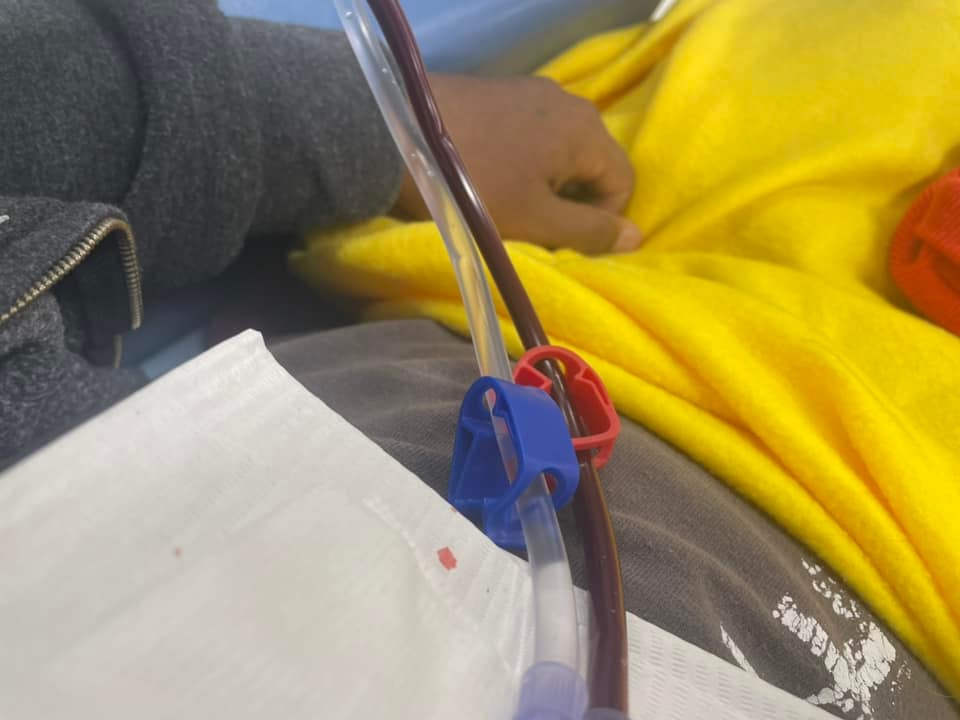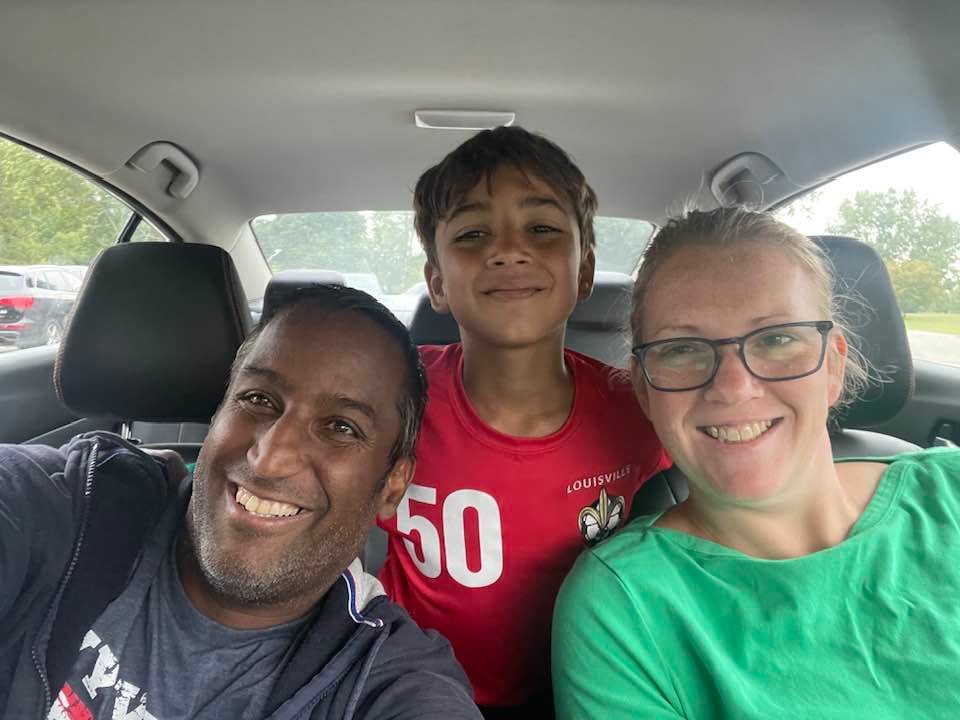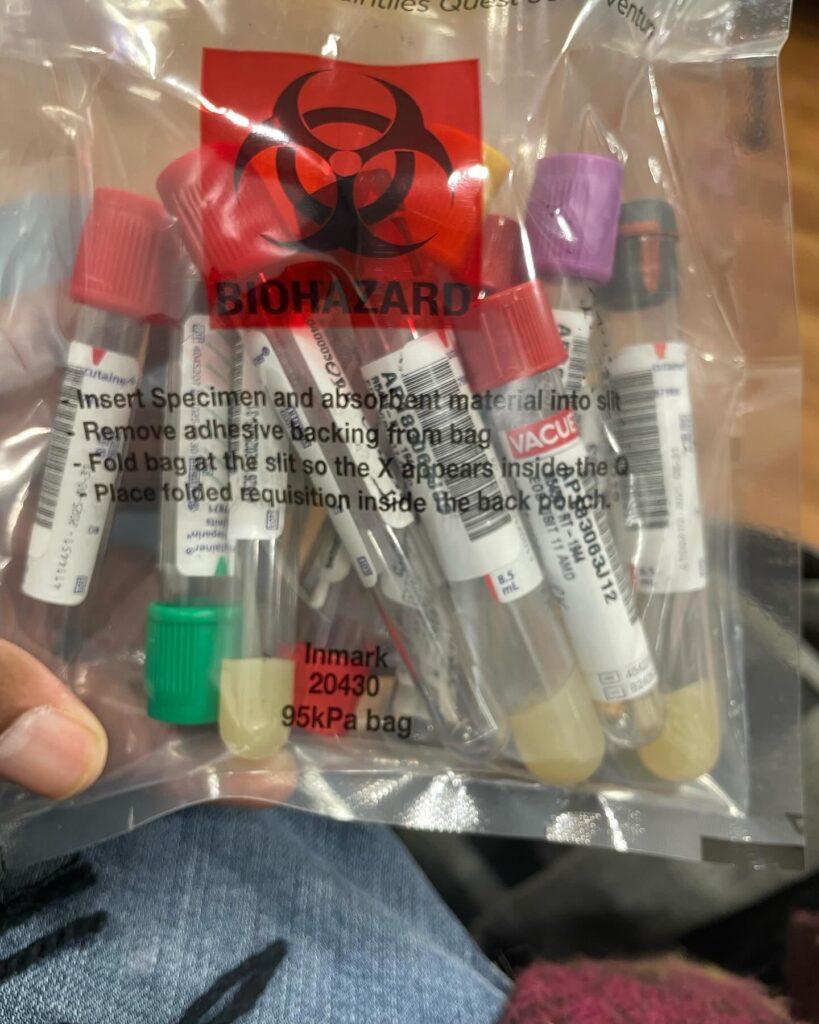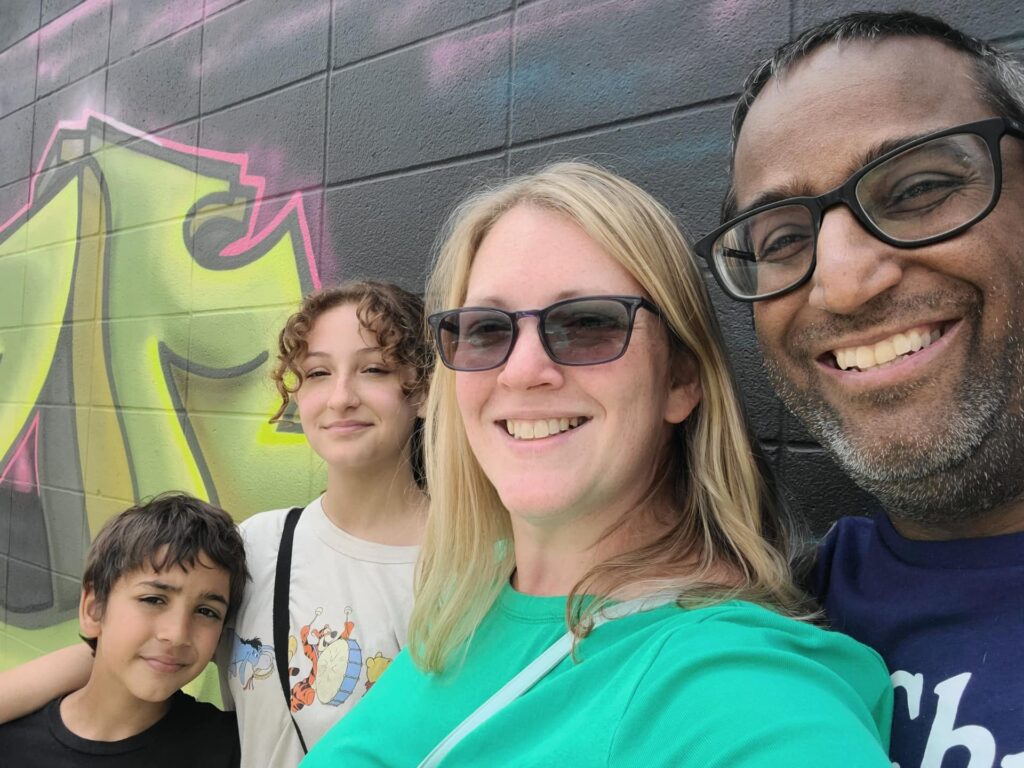
As I sit and write, it’s been five years in the chair—five years of waiting. Three times a week, on Mondays, Wednesdays, and Fridays, I wake up while it’s still dark outside to head to dialysis, my life-saving treatment. As my blood is cleaned and fluid is removed from my body, I sit and ponder: Will I ever get the chance to live a full whole life?
I’ve learned, with the help of my family and friends, that I must keep advocating for myself while also learning patience. Waiting comes with many emotions: hopelessness, depression, and frustration, and these are very real. I’ve given myself permission to feel them and own them.

I have worked tirelessly over the last two years, researching and studying different approaches to hopefully find myself a new kidney. I’ve learned that there are transplant centers that specialize in helping patients who struggle to get a kidney due to high antibodies. These antibodies can develop if you’ve had a previous organ transplant, a blood transfusion, or, for women, a past pregnancy.
Some centers try to lower antibodies using medicines or treatments such as plasmapheresis or IVIG. IVIG involves giving patients a concentrated dose of antibodies collected from donated blood from thousands of healthy people, and it remains the current standard of care. Other centers are exploring newer approaches, such as Belatacept and additional drugs. There is also discussion about xenotransplantation of organs or tissue from one species to another. Right now, NYU Langone and Massachusetts General Hospital are beginning early human trials.
In February of this year, I had the opportunity to speak with the team at NYU Langone. After some testing, I was able to get listed and participate in a clinical trial aimed at lowering my antibodies. Although it didn’t work for me, the experience was eye-opening and gave me valuable insight into how clinical trials operate. It also reinforced how important it is for patients’ voices to be heard in these studies.

For the trial, I worked with NYU for three months, traveling once a month from June 2024 through August 2024. Each time, I would fly to New York, receive the infusion, stay for 24 hours of observation, and then return home. After those three months, I followed up with local bloodwork until the study concluded in January 2025. In February, I had the opportunity to go back to NYU and meet with one of their teams to discuss the potential of a pig kidney. As of this writing, I am still waiting.
As I’ve learned from the great children’s book writer Mo Willems in his Elephant and Piggie book, Waiting Is Not Easy! I’ve had to remind myself to keep pressing on and look for new opportunities while waiting for a response from the NYU team. My fiancée, Tamiera, did some research online and discovered that the University of Chicago has a unique clinical trial using Belatacept and other drugs. I flew to Chicago, went through the process of getting listed, and met with a doctor who is willing to work with me. I am now wait-listed with them as well and continue to wait for insurance approval for the Belatacept treatment.
Sometimes waiting has meant I haven’t been the most available parent. I’ve missed my son Zander’s soccer games and practices, and my daughter Abby’s band and jazz concerts. That feels awful. At times, I’ve even felt like I’ve “wasted” my time waiting instead of being fully present in the here and now.
Recently, my family and I started a nightly meditation ritual using an app called The Way. It’s been teaching me how to be present in my body and physical space. It isn’t easy; anxiety still creeps in, and I worry. But I’ve learned that anxiety is normal. The key is not to stay stuck in it, but to notice it, then bring myself back to the present through something tangible around me.

As I continue to wait for a second kidney transplant, I want to remind others: you are not alone on this journey. While you wait for your call, look for ways to connect, share a meal with a friend, call someone, or send a kind message. Connection can make the waiting lighter.
Here at TransplantLyfe, we have a wonderful community of patients, caregivers, healthcare providers, and physicians, all here to support one another. I’m learning to wait not just to live my best life, but to live a life worth living—right here, right now.
Thanks for reading. Visit us at transplantlyfe.com to learn more from our community.
In Lyfe,
Alex
